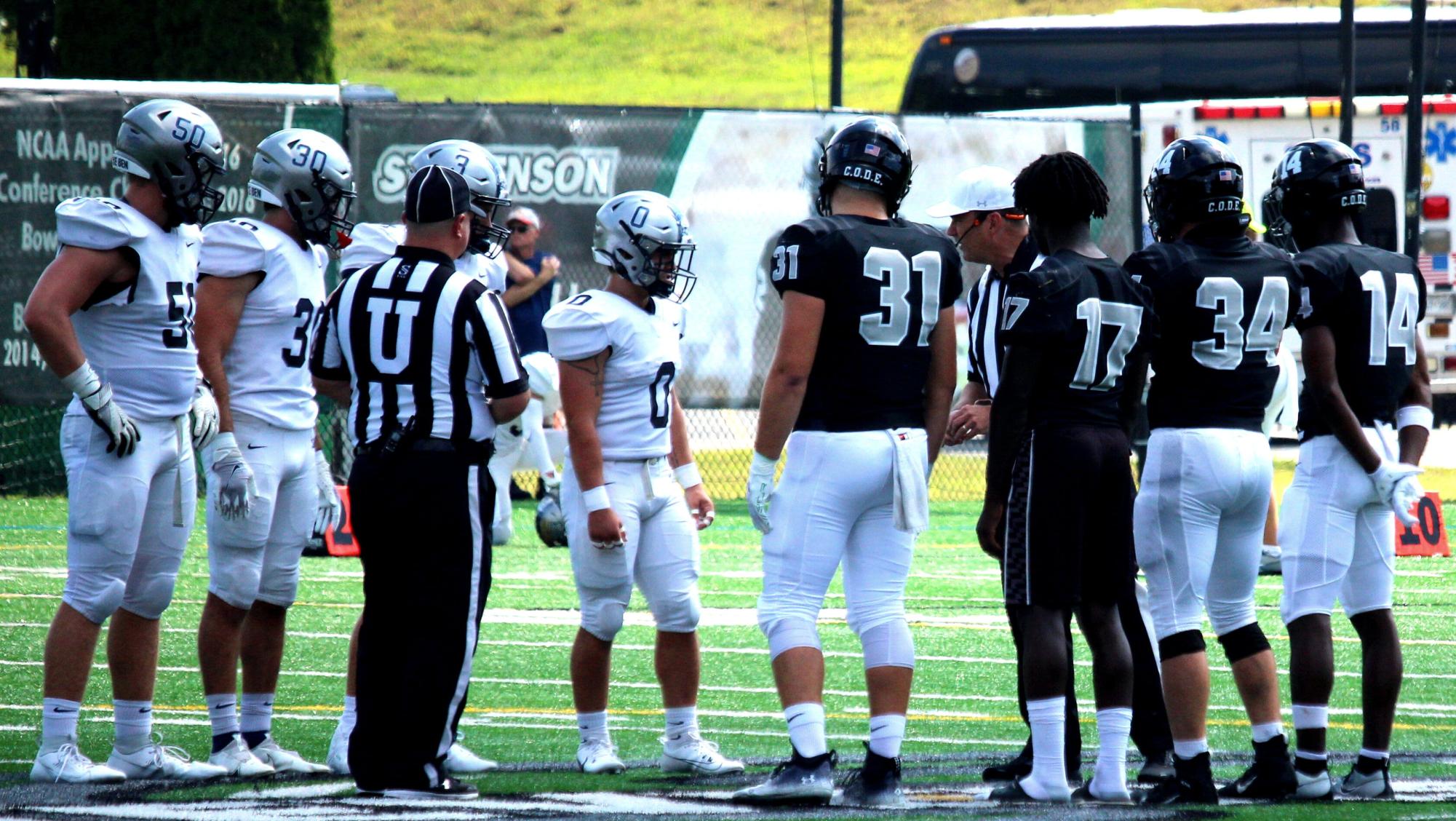After four straight wins, Stevenson football is back at home this Saturday at noon for the homecoming game against Misericordia University.
The Mustangs have dominated over the last few weeks, only allowing 13 points to be scored against them in their last three outings.

On the offensive side of SU’s game, Louis Clouser (32) has been a new dominating force. With 95 rushing yards and two touchdowns during last week’s game against Alvernia University, the junior running back is someone all fans should be looking out for. Junior RB Maurice Hammond (21) has been another key rushing player for the Mustangs, also scoring two touchdowns last game and rushing for 65 yards. Nyaire Wilson (9) continues to be the backbone for Stevenson’s offense, playing a well-rounded overall game. Against Alvernia, the junior quarterback contributed one touchdown, 115 passing yards, and 15 rushing yards.

The Stevenson defense has shown their grit over the past few games, evident by such low points scored against them in the recent stretch of games. Among the top contributors were multiple juniors. Daniel Johnson (54) has been a force to be reckoned with, contributing seven total tackles and two sacks against Alvernia. Gavin Shields (34) and Anthony Lembo (22) contributed six total tackles each during their last game, with Shields also adding 1.5 sacks. The junior-heavy defense looks to hold Misericordia to another low scoring game.
Misericordia is 2-4 (2-3 MAC) coming into the homecoming game while the Mustangs sit at 5-1 (4-1 MAC). Tune in at noon this Saturday to see SU battle to extend their four-game winning streak to five and be sure to keep an eye out for the consistently impressive offensive and defensive leaders.
Mid-Atlantic Football Standings MAC Win Pct. Overall Win Pct. Streak









abigale eash • Oct 19, 2023 at 2:02 pm
fascinating article ava